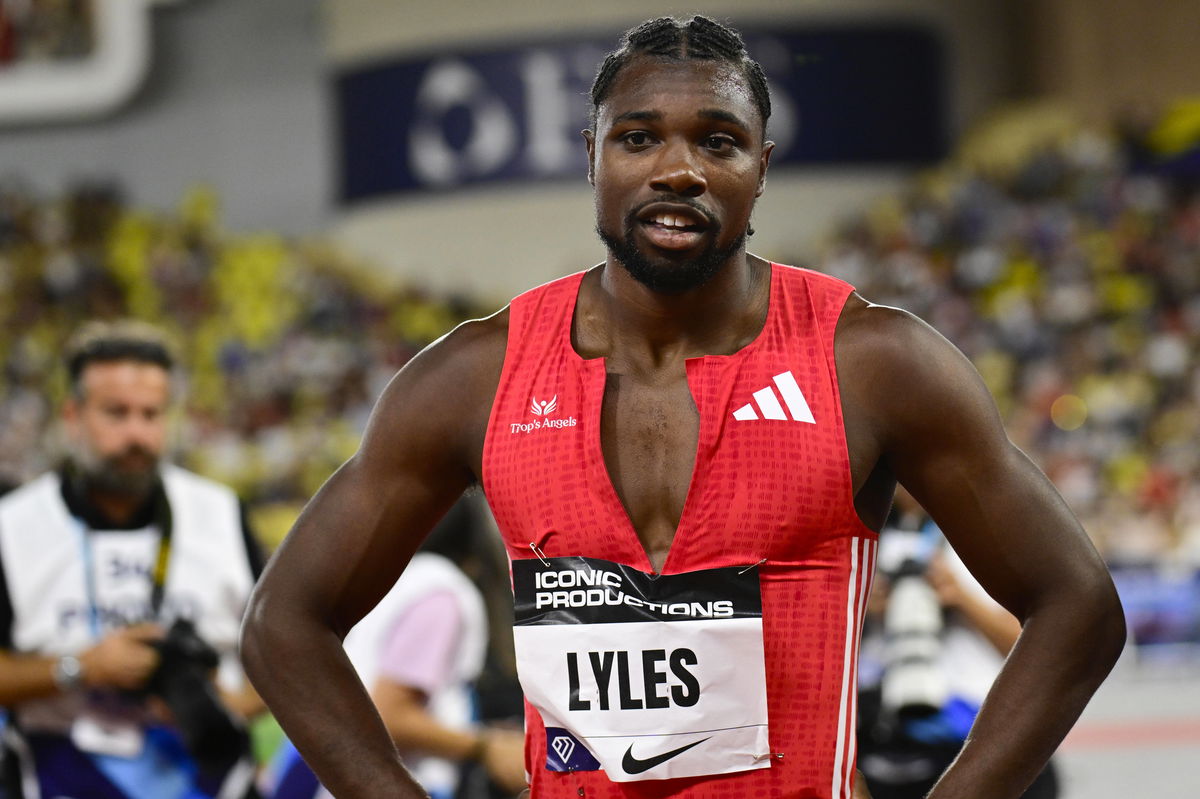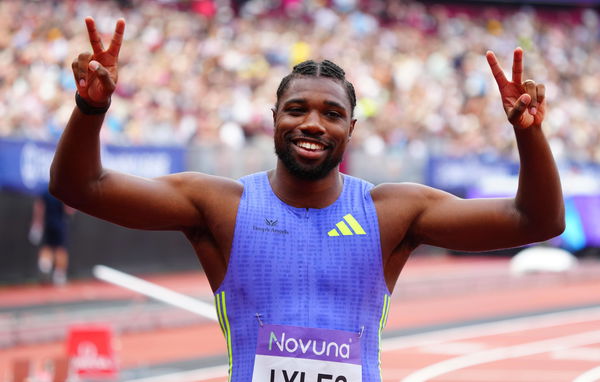
Imago
ATHLETISME : Meeting Herculis – Diamond League – 11/07/2025 – Monaco Noah Lyles MonacoMonaco PUBLICATIONxNOTxINxFRAxBEL Copyright: xWilliamxCannarellax

Imago
ATHLETISME : Meeting Herculis – Diamond League – 11/07/2025 – Monaco Noah Lyles MonacoMonaco PUBLICATIONxNOTxINxFRAxBEL Copyright: xWilliamxCannarellax
As the countdown to the 2025 USATF Outdoor Championships tightens, the buzz is electric. From Noah Lyles’ sprint supremacy to Sydney McLaughlin-Levrone’s flat 400m, the stacked lineup promises fireworks. But just as excitement peaks, USATF’s announcement of prize money has sparked more disappointment than celebration. But why so?
Watch What’s Trending Now!
Well, according to the official breakdown, individual national champions will receive $8,800, with silver and bronze medallists earning $6,600 and $4,400 respectively. Fourth through seventh places will be awarded descending sums, starting at $3,300 down to $1,100. That’s right—$1,100 for seventh place in the most competitive national meet of the year.
ADVERTISEMENT
Prize money breakdown for the 2025 USATF Outdoor Championships. #USATFOutdoors pic.twitter.com/m67aF7FbJI
— Travis Miller (@travismillerx13) July 30, 2025
While that figure might seem decent on paper, compare it to the scale of the event and the sacrifices these athletes make year-round, it feels dishearteningly low. Especially when juxtaposed with other major sports or even global track meets, like the Diamond League, where winners can net $10,000 per race and accumulate significantly more over a season.
ADVERTISEMENT
As excitement surges for what promises to be a thriller meet in Eugene, one question lingers louder than the starter’s gun: why aren’t our champions paid like champions?
And now, fans aren’t staying quiet, they’re lashing out at USATF, demanding change and fairness for the country’s best.
ADVERTISEMENT
Fan reactions erupt over USATF Prize Money reveal
As the curtain lifts on the 2025 USATF Outdoor Championships in Eugene, excitement for the performances has been clouded by a storm of outrage. The recently unveiled prize money has fans speaking out, and they’re not holding back.
ADVERTISEMENT
On social media, one fan summed up the frustration bluntly: “USATF should be ashamed of themselves. Depending on the athlete, 4th or 5th place is the cost of room and board to and from Eugene.” That sentiment echoes across track circles, as many point out the financial toll athletes shoulder just to compete at this level.
Digging deeper, others questioned the lack of transparency and progression over time. “Ridiculous. How does this compare to other countries?” one user posted. “Does anyone have history of whether these values have increased, or has it been the same way for a while?” It’s a fair question, especially as international meets often boast better compensation.
ADVERTISEMENT

Imago
Noah Lyles after his loss in the 100 metres to Oblique Seville Novuna Diamond League, Athletics, London Stadium, London, UK – 19 Jul 2025London London Stadium United Kingdom PUBLICATIONxINxGERxSUIxAUTxHUNxGRExMLTxCYPxROUxBULxUAExKSAxCHNxDENxINDxITAxPORxESPxSWExTURxMEXxCOLxVENxPERxECUxBRAxARGxCHIxURUxPARxPANxONLY Copyright: xJavierxGarcia/Shutterstockx 15403611aa
Meanwhile, the reality for athletes living paycheck to paycheck hit hard for fans who understand the grind. “Very difficult financially to be an elite Track and Field athlete,” one wrote. “Costs more to get to an event than the prize money.” That truth stings, particularly when considering the caliber of talent lining up in Eugene.
ADVERTISEMENT
So what are fans calling for? Beyond the criticism, many are urging collective action. “USATF athletes need to start moving like the WNBA athletes,” one suggested, referencing the growing advocacy and bargaining power seen in other underpaid leagues.
The harshest responses don’t sugarcoat the issue. “This is pitiful…” wrote one fan. Another added with disbelief, “Not even covering plane transport + hotel. Smh.”
Clearly, the performances won’t be the only thing fans are watching in Eugene—they’ll be watching if USATF listens.
ADVERTISEMENT
ADVERTISEMENT
ADVERTISEMENT
ADVERTISEMENT